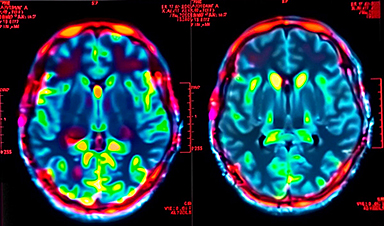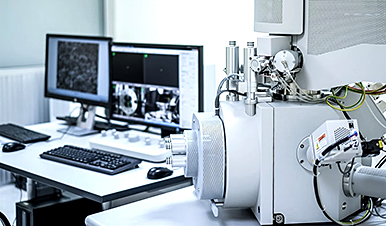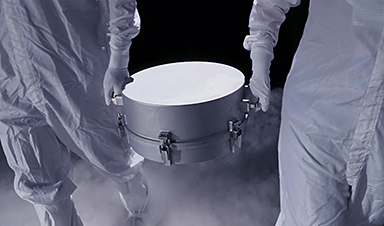From an article by Scott Wagers MD:
A challenge that anyone working to bring new technology, therapies, or approaches from proof of concept to clinic implementation is funding. I have been tracking the concept of crowd funding for a number of years, but have not seen many platforms that offer the opportunity to raise funding to a degree that will really make a difference.
So, I was enthusiastic when I met Pilar Puig Sàrries and learned about the work she is doing at Capital Cell, a crowdfunding platform specializing in the life sciences. She is the head the BioExpert Network and life sciences analytics at Capital Cell and passionate about her work to help startups in the life sciences bridge the translational gap.
How did you start doing what you are doing now?
During my PhD in molecular biology I felt uncertain about becoming a Spanish researcher because in Spain every 1-3 years you need to apply for further support for your research which means no stability.
So, during my PhD I began my first startup. It was an online/offline game for couples. I was able to sell 1.000 games after closing a successful crowdfunding campaign, which in my mind was pretty successful. But I also had to write my thesis and I also had a big interest in travel.
After my PhD I took a 9 month trip to South America and those 9 months were the happiest time of my life. When I came back, I knew that I didn’t want to keep doing research, so it seemed ideal to do something related to science, but also related to entrepreneurship. I was fortunate to find an opportunity at Capital Cell as a life science analyst.
What do you do at Capital Cell?
Capital cell is a start-up which means anyone working there has many roles. My job title is life science analyst, but I also do business development for clients such as helping them with their business models and building their pitch. We also help them look for investors as well. I also produce content for the website. Last year with the CEO of Capital Cell we created the BioExpert Network which is a network of experts who help us evaluate and select companies to be included in our crowdfunding platform.
Can you explain a bit about the philosophy behind Capital Cell and how it works?
Capital Cell is the first equity crowdfunding specialized in life sciences in Europe. And since last September, we are also operating in the UK.
We help companies in the life science sector get funded. Most of them are in the ‘valley of death’, which is also called the translational gap. They may have proof of concept, but need capital to continue to get scientific validation. We are now working with some companies that are further along, but still need to have some more funding before approaching VCs.
Image Credit: Shutterstock.com
News This Week
Does COVID increase the risk of Alzheimer’s disease?
Scientists discover that even mild COVID-19 can alter brain proteins linked to Alzheimer’s disease, potentially increasing dementia risk—raising urgent public health concerns. A recent study published in the journal Nature Medicine investigated whether both mild and [...]
New MRI Study Reveals How Cannabis Alters Brain Activity and Weakens Memory
A massive new study sheds light on how cannabis affects the brain, particularly during cognitive tasks. Researchers analyzed over 1,000 young adults and found that both heavy lifetime use and recent cannabis consumption significantly reduced brain [...]
How to Assess Nanotoxicity: Key Methods and Protocols
With their high surface area and enhanced physicochemical properties, nanomaterials play a critical role in drug delivery, consumer products, and environmental technologies. However, their nanoscale dimensions enable interactions with cellular components in complex and [...]
Nanotech drug delivery shows lasting benefits, reducing need for repeat surgeries
A nanotechnology-based drug delivery system developed at UVA Health to save patients from repeated surgeries has proved to have unexpectedly long-lasting benefits in lab tests – a promising sign for its potential to help human patients. [...]
Scientists Just Found DNA’s Building Blocks in Asteroid Bennu – Could This Explain Life’s Origins?
Japanese scientists detected all five nucleobases — building blocks of DNA and RNA — in samples returned from asteroid Bennu by NASA’s OSIRIS-REx mission. NASA’s OSIRIS-REx mission brought back 121.6 grams of asteroid Bennu, unveiling nitrogen-rich organic matter, including DNA’s essential [...]
AI-Designed Proteins – Unlike Any Found in Nature – Revolutionize Snakebite Treatment
Scientists have pioneered a groundbreaking method to combat snake venom using newly designed proteins, offering hope for more effective, accessible, and affordable antivenom solutions. By utilizing advanced computational techniques and deep learning, this innovative [...]
New nanosystem offers hope for improved diagnosis and treatment of tongue cancer
A pioneering study has unveiled the Au-HN-1 nanosystem, a cutting-edge approach that promises to transform the diagnosis and treatment of tongue squamous cell carcinoma (TSCC). By harnessing gold nanoparticles coupled with the HN-1 peptide, [...]
Global Trust in Science Is Stronger Than Expected – What’s Next?
A landmark global survey conducted across 68 countries has found that public trust in scientists remains robust, with significant support for their active involvement in societal and political matters. The study highlights the public’s [...]















Leave A Comment